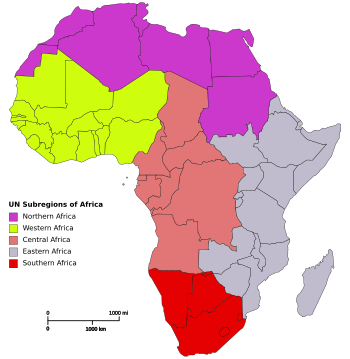| This article needs additional citations for verification. Please help improve this article by adding citations to reliable sources. Unsourced material may be challenged and removed. Find sources: "Pan-African University" – news · newspapers · books · scholar · JSTOR (December 2022) (Learn how and when to remove this message) |
| Formation | 2008 |
|---|---|
| Purpose | Post-graduate education |
| Region served | Africa |
| Council President | Tolly Mbwette |
| Council Vice President | Paulo de Carvalho |
| Interim Deputy Rector | Belay Kassa |
| Parent organization | African Union |
The Pan-African University (PAU) is a network of post-graduate training and research nodes supported by the African Union and the Association of African Universities. The university aims to enhance the quality of science and technology education in Africa and improve the productivity of African economies by providing advanced graduate training and postgraduate research opportunities for high-performing African students.
Formation
The PAU was officially launched on 14 December 2011 following the African Union's decision of 2008 to establish it. A high-level panel, which included notable figures such as Njabulo Ndebele and Ahmadou Lamine Ndiaye, oversaw its creation. The university's statute was adopted in 2013. The objectives of the PAU include fostering collaborative and internationally competitive research and enhancing the appeal of African higher education and research institutions.
Regional institutes

The PAU consists of five flagship institutes, each focusing on vital thematic areas across different regions of Africa. Hosted by prominent universities in various geographic regions, these institutes encompass Basic Sciences, Technology, and Innovation; Life and Earth Sciences (including Health and Agriculture); Governance, Humanities, and Social Sciences; Water and Energy Sciences (including Climate Change); and Space Sciences. These institutes collaborate with ten Satellite Centers each, fostering inter-and trans-disciplinary programs. Upon full deployment, the PAU will encompass 50 centers of excellence under its five African academic hubs.
Implementation status
PAU Institutes are operational in four of Africa's five regions: Western, Eastern, Central, and Northern. Negotiations are ongoing to establish the fifth PAU Institute in Southern Africa. The inaugural batch of students graduated in 2014, followed by another batch in 2015. The PAU has a growing student population, with 314 students and an admissions list of 350 for the 2015/2016 academic year. The number of applicants for the 2015–2016 academic year increased significantly, with a notable rise in the number of female applicants.
The PAU Council, established in June 2015, oversees the university's progress and development. The council aims to enhance the autonomy of the institution while ensuring excellence in education and research. The PAU Rectorate was appointed to facilitate communication and coordination among stakeholders, and in January 2015, the Republic of Cameroon was selected to host the Pan African University Rectorate.
PAU scholarship grants
PAU provides full scholarships to students selected through a competitive admissions process. The scholarship covers tuition fees, stipends for living expenses, travel allowances, and medical insurance. Students commit to serving an African Union Member State for a period equal to the scholarship duration after completing their studies. Income-generating activities that may interfere with academic programs require approval from the PAU Rectorate. The scholarship grant is comprehensive, supporting students' educational journey while emphasizing academic focus.
PAU partnerships
The PAU collaborates with thematic partners to enhance the teaching and research capacity of its institutes. Thematic Partners contribute resources, expertise, and best practices, strengthening the institutes' overall quality. Key Thematic Partners (KTPs) are particularly involved in supporting multiple thematic areas, contributing to the holistic development of the PAU.
Pan African University Alumni Association
The Pan African University Alumni Association (PAUAA) was established to connect and empower PAU graduates. The association fosters collaboration and growth among its members, facilitating networking opportunities and knowledge sharing. Inaugural members of the Bureau were appointed during the PAUAA's official inauguration at The African Union Commission Headquarters in Addis Ababa, Ethiopia in December 2017.
References
- Mamadou Mika LOM (17 August 2011). "3 centres d'excellence de l'Institution ouvrent en septembre". Sud Online. Retrieved 1 December 2011.
- ^ "Pan African University becoming a reality". EuropeAfrica. 15 July 2011. Retrieved 1 December 2011.
- ^ "Pan-African University to open first centres". University World News. 28 August 2011. Retrieved 1 December 2011.
- "Kenya to host Pan African University institute". African Brains. 10 May 2011. Retrieved 1 December 2011.
- Academy, Miratem (24 July 2023). "Courses Offered By Pan African University (PAU)". Retrieved 8 November 2023.
- PAU, PAU. "PAU Alumni". JKUAT. Retrieved 12 April 2018.
- Africa, Space in (8 May 2019). "Pan African University Institute for Space Sciences to begin operation soon". Space in Africa. Retrieved 5 January 2023.
- ^ "Kenya to host Pan African University institute". African Brains. 10 May 2011. Retrieved 1 December 2011.